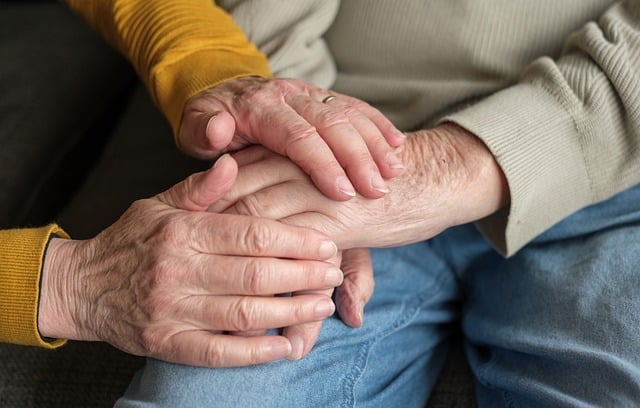NURSING HOME JOBS IN UK WITH VISA SPONSORSHIP
Are you an experienced nurse looking to work in UK with visa sponsorship? Read on to know more about nursing home jobs in UK, their roles or responsibilities, average pay and how to secure a job in this field in UK. Individuals who are unable to receive care at home but do not require hospitalization can be placed in a nursing home. The majority of nursing facilities have licensed nurses and nursing assistants on duty around-the-clock.
There are nursing homes that are hospital-style setups. In addition to medical care, the staff offers occupational, speech, and physical therapy. Every floor may have a nurses’ station. Some assisted living facilities aim to resemble homes more. They attempt to feel like a neighborhood. They frequently don’t follow a set routine, and residents may have access to the kitchens. It is encouraged for staff personnel to establish rapport with the residents. Caregivers are people who work at nursing homes in the United Kingdom. They have certain tasks and obligations there.
It is feasible to work in a UK nursing home under sponsorship for a visa, however there are requirements, some of which are as follows: Prior to applying for a Health and Care Worker visa, you must have an employment offer from a UK business that has been authorized. Since approved employers are paying for your travel and accommodations while you are in the UK, they are also referred to as sponsors.
You must have a job offer from;
1.The NHS
2. An organisation providing medical services to the NHS
3. An organisation providing adult social care
AVERAGE SALARY OF NURSING HOMES JOBS IN UK WITH VISA SPONSORSHIP
In the UK, the average pay for a care worker is £12 per hour, or £23,410 annually. The starting salary for entry-level professions is £21,133 annually, while the highest salary for experienced workers is £38,959.
MAIN DUTIES AND RESPONSIBILITIES OF A CAREGIVER
Meal preparation: Meal preparation is a significant part of the tasks and obligations of a caregiver. It’s not a requirement to be an expert cook to make simple meals for senior citizens. They can survive at home on snacks and meals prepared with basic cooking abilities. Because they won’t have to prepare the food themselves, having the meals ready can also help to prevent injury.
Nutrition: Maintaining a healthy, balanced diet is crucial for seniors, even in the absence of any special dietary requirements. Taking care of their nutritional needs is frequently one of the caregiver’s responsibilities.
Household chores: The majority of us can easily complete the laundry, dishes, mopping, and sweeping on a regular basis. These easy things become very difficult for the elderly.
Hygiene Care: Taking care of oneself is very personal. As a caregiver, you will help seniors with personal hygiene, clothing, and using the restroom as needed. Maintaining a person’s dignity requires compassionate management.
Shopping: A lot of people find enjoyment in going shopping. It can occasionally be very impossible for elders to do on their own or at all. Buying groceries or running errands around the store helps them take care of essential requirements.
Companionship: There is a push to refer to caretakers as “companions” instead of “companions.” In all honesty, that makes perfect sense because the health of an elderly person is probably improved more by simply being there for them than by practically anything else. Through engaging in activities like as gossiping or watching TV together, you will have the chance to deeply connect with someone.
Mobility: Personal care requirements might fluctuate on a weekly or even daily basis, contingent on the unique requirements of each person. Seniors with limited mobility can have physical challenges, which can also be physically taxing for the caregiver. Making the best choices for yourself and others while carrying out your job as a caregiver can be aided by having a thorough understanding of physical care requirements.
Medical Monitoring: The majority of seniors will need to take medication on a daily basis. Encouraging them to take their medication as prescribed by a medical practitioner and ensuring they have the right dosage on hand are two possible caregiver roles and obligations.
Medical Advocacy: Monitoring a senior’s healthcare in its various forms may be one of the less well-known facets of a caregiver’s work. Is their specialist failing to reschedule when necessary? Is the dosage on their medication off? You have the power to step in, stand up for the people in your care, and make sure they get the best care possible—you might even be able to stop a potentially fatal situation.
HOW TO GET A NURSING HOME JOB IN UK WITH VISA SPONSORSHIP
If you are an international nurse looking to work in the UK, there are several options available to you. Here’s what you need to know.
1. Registering with the Nursing and Midwifery Council (NMC).
2. Applying for nursing jobs in the UK
3. Interviewing
4. Receiving job offers & visa sponsorship



